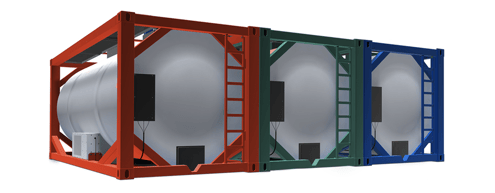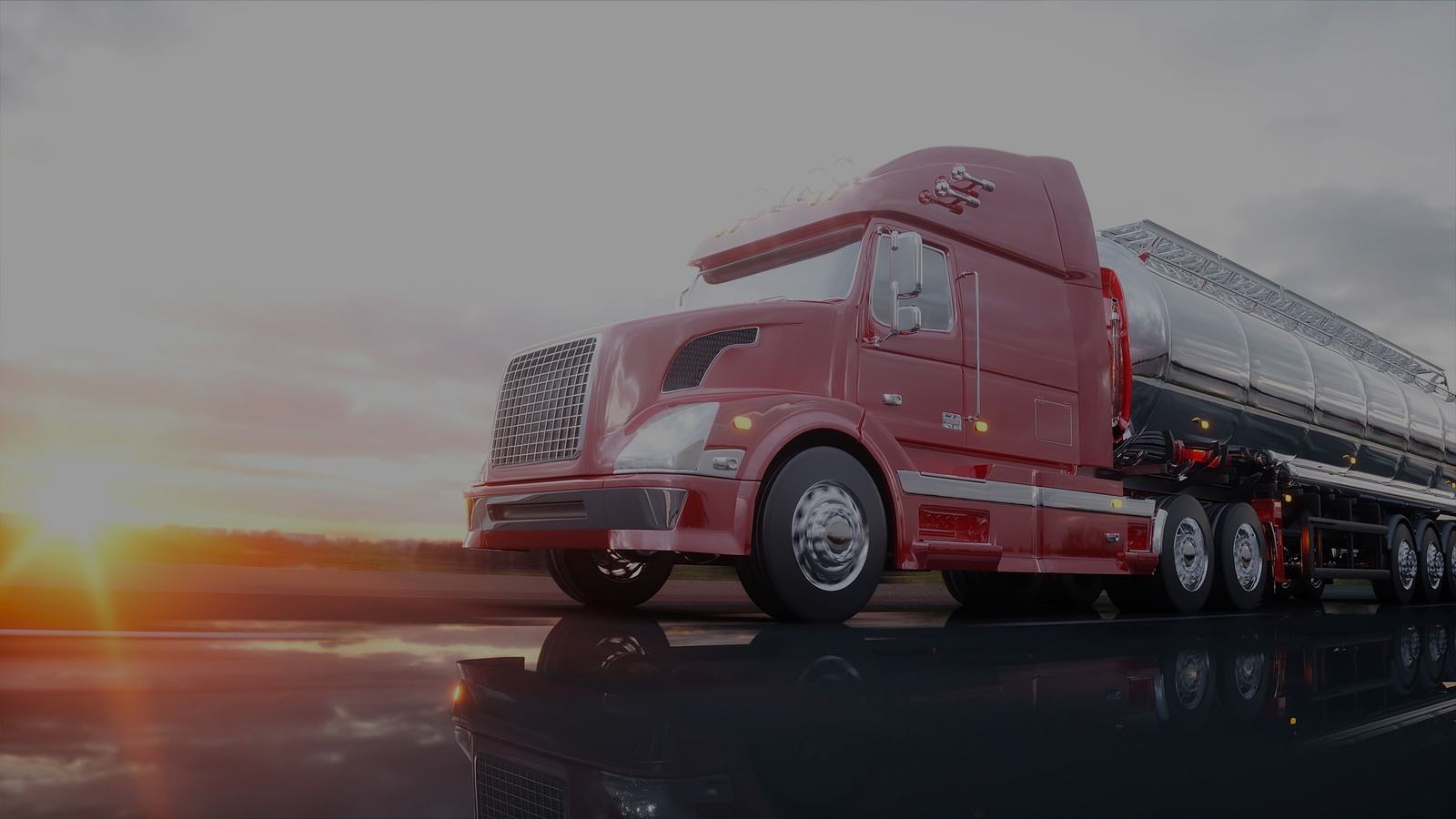If you’re a frequent reader of this blog, you’re familiar with the many things that freight brokers specializing in bulk freight can do for your bulk transportation needs. There is, however, another commonly-overlooked capability: bulk liquid drayage. In this article, we’ll describe what bulk freight brokers can do for you once your imported freight hits North American ports.
What is bulk liquid drayage?
 Bulk liquid drayage is the process of receiving containerized freight at a port, loading it onto a chassis, and hauling it to its destination. Bulk liquid freight is generally containerized in one of two ways.
Bulk liquid drayage is the process of receiving containerized freight at a port, loading it onto a chassis, and hauling it to its destination. Bulk liquid freight is generally containerized in one of two ways.
- ISO tanks are steel cylinders that sit within a metal, wall-less box frame. Most ISO tanks are approximately 20’ long and 8’ tall and can hold roughly the same amount of liquid as a standard liquid bulk tank. These tanks can be used to transport most liquids.
- Flexitanks are large bladder-shaped ‘bags’ that fit inside a typical 20-foot ocean container. They are made from materials such as polyethylene or PVC and are commonly used to transport food-grade liquids, non-hazardous materials, water, industrial products, and other liquids.
In comparing flexitanks and ISO tanks, flexitanks are more cost-effective and are typically discarded after a single shipment. ISO tanks, on the other hand, must be cleaned and stored at an “ISO depot,” which is basically an outdoor warehouse with ISO tanks stacked high and wide. However, manufacturers and shippers may also store tanks on site.
These containerized modes of bulk liquid transport enable multi-modal journeys that might involve ocean shipping, OTR and rail. The containers can simply be moved from one mode to the next. This is a major advantage at a time when the driver shortage has made it challenging for shippers to find OTR capacity.
Turn to a freight broker for bulk liquid drayage
The role of the bulk freight broker in drayage starts in the last leg of the ocean shipment. The brokerage receives customs paperwork and the shipment arrival time and then lines up the carrier and equipment to pick up the containers at the port. The container is typically then drayed to the end user where a live unload is performed by the consignee. The carrier will then return the container and chassis to the port – or will return the ISO container to the necessary depot.
Much like liquid bulk trucking, there are several advantages for shippers to work with a freight broker for bulk liquid drayage.
1. A freight broker has a national network. When you partner with a freight broker that utilizes a large national network, you can match your loads with (typically) hundreds of carefully vetted bulk freight carriers and drayage providers with a single phone call.Such a network can expand your shipping lane options and drive carriers to offer competitive rates for your business. This network can also be an invaluable resource during times of tight capacity when your regular carrier may be unable to offer the service levels you require. And, unlike load boards, your freight broker will work with you to manage shipment details.
2. A freight broker can move freight fast. The large size of a 3PL’s carrier network allows for greater flexibility in meeting the timelines of shippers. From there, communication is vital to iron out schedules that work for shippers and destination facilities. We can also factor in stops to ISO depots and other items.
3. A freight broker can thoroughly vet carriers. The act of acquiring rates from multiple carriers can be a time-consuming process. And, even after you find the rates you like, it’s then time to vet those carriers. This involves acquiring information related to insurance, operating authority, driver certifications, hazmat information, and much more. This also takes a great deal of time.
4. A freight broker is objective. When you work directly with a drayage provider, that provider is compelled to handle your project using its own trucks and equipment – no matter how long you need to wait for it to free up. When you work with a freight broker, on the other hand, the broker has no such bias. The broker is free to match your load with the most qualified carrier and equipment.
5. A freight broker can handle blind shipments. Many chemical companies choose to ship products ‘blind.’ In such instances, the Bill of Lading may show the name of the distributor or be left blank – instead of showing the name of the actual shipper. In other cases, ‘double blind’ shipments may be requested. With these shipments, both the shipper and receiver are confidential. No matter what your specific needs are, freight brokers that specialize in chemical shipping can handle blind shipments for you just as expertly as your day-to-day carriers would.
6. A freight broker has product expertise. Freight brokers that specialize in chemical and hazmat freight often have equal or greater knowledge of your products than carriers. At Bulk Connection, for instance, we’ve been handling chemicals for well over 30 years – and most of our sales agents have been in the industry for many years.
Turn to Bulk Connection for bulk liquid drayage
Whatever your bulk freight needs – whether drayage or liquid and dry bulk trucking – Bulk Connection has got you covered. We have a one of the largest bulk carrier networks in North America and a team of true bulk freight professionals that know your products and understand your needs. We also have a team solely dedicated to vetting carriers and ensuring all information is current. So, when it’s time to plan your next shipment, be sure to contact Bulk Connection to see how we can help.




